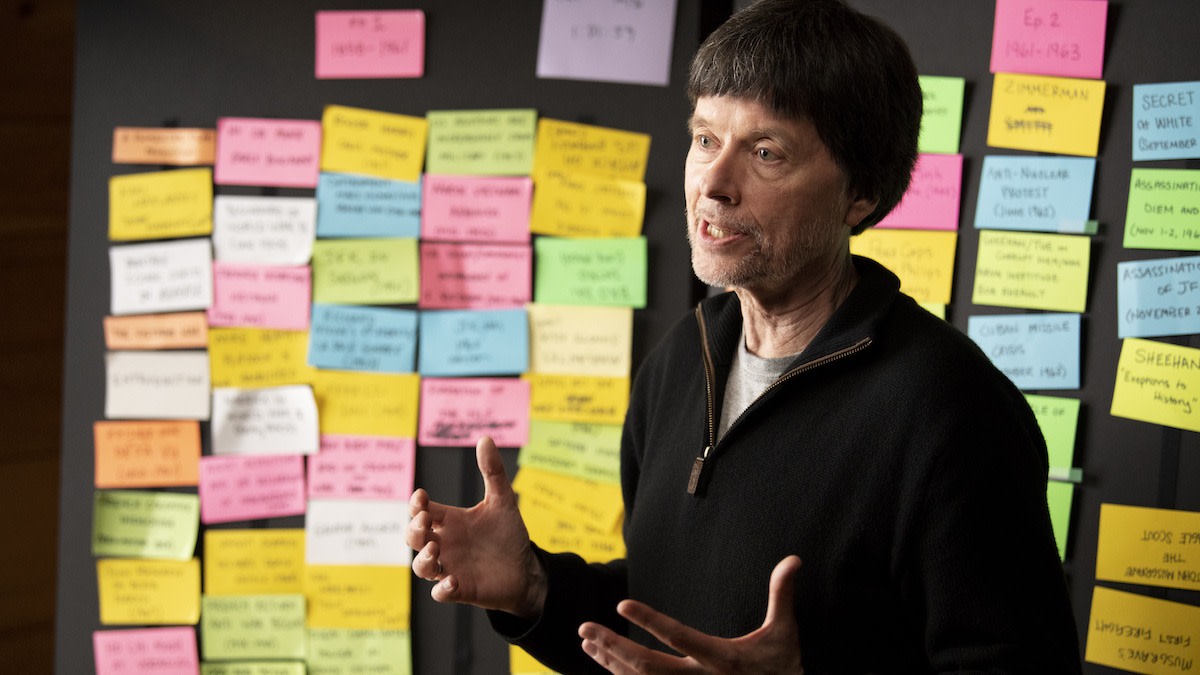Ken Burns’s 3 Essential Tips for Telling an Unconventional Story
Written by MasterClass
Last updated: Jun 7, 2021 • 3 min read
Ken Burns often breaks convention to create engaging documentaries. Burns offers tips on documentary writing and how to tell an unconventional story through film.
Learn From the Best
A good documentary feature film can help us learn where the truth lies in past or current events. Documentarians create nonfiction films that present truth in cinematic form, using various techniques to draw audiences in, making them care about the subject matter taking place in front of the camera. Once you know the technical aspects of how to make a documentary movie, you can start to select the information you’ll include. Depending on the type of documentary you’re trying to make, this information can affect the story you want to tell.
A Brief Introduction to Ken Burns
Ken Burns has been making documentary films for more than 40 years. Ken’s films have been honored with dozens of major awards, including 15 Emmy Awards, two Grammy Awards, and two Oscar nominations. In September of 2008, at the News & Documentary Emmy Awards, Ken was honored by the Academy of Television Arts & Sciences with a Lifetime Achievement Award. A December 2002 poll conducted by Realscreen magazine listed The Civil War (1990) as second only to Robert Flaherty’s Nanook of the North as the “most influential documentary of all time,” and named Ken Burns and Robert Flaherty as the “most influential documentary makers” of all time. Since making his first documentary, the Academy Award-nominated Brooklyn Bridge in 1981, Ken has gone on to direct and produce some of the most acclaimed historical feature documentaries ever made, including The Statue of Liberty (1985), Huey Long (1985), Baseball (1994), Lewis & Clark: The Journey of the Corps of Discovery (1997), Jazz (2001), The War (2007), The Dust Bowl (2012), Jackie Robinson (2016), and The Vietnam War (2017) His latest documentary for PBS, The Gene: An Intimate History was released in April 2020.
Ken Burns’s 3 Tips for Telling an Unconventional Story
To tell a compelling unconventional story—whether it’s a short film or a feature-length documentary—you need to understand your relationship to convention and how it affects your storytelling. World-class documentarian Ken Burns is known for taking accounts from real-life events and crafting them into compelling, unconventional storylines. Before you begin the pre-production writing process, check out a few of Ken’s documentary filmmaking tips:
- 1. Get past your personal baggage. To finally liberate your story, you have to escape the specific gravity, the dark matter, the black hole of conventional wisdom, which oversimplifies everything. Ken received an unexpected wake-up call at the start of film production for The Vietnam War (2017). Ken assumed he knew everything about the war, but quickly realized his knowledge was only superficial. Learning from his past mistakes, Ken now starts every project by understanding his baggage and checking it. This personal baggage, or the way we view things based on our experience, passing knowledge, and limited perception can negatively affect your ability to tell an unconventional story.
- 2. Reset and start with the basics. Ken says once he realized that his personal baggage was affecting his storytelling, he had to reset and learn new information. If you want to dig deep into the unconventional, you first have to forget everything you know and start over with basic assumptions—most of which will likely be wrong. Starting over with an open mind about the subject you’re chronicling puts you in a good position to tell an unconventional story. Preconceived notions are limiting. Finding new perspectives and accounts can change your views and lead you to uncover a greater truth.
- 3. Learn new facts. “On numerous occasions, I’ve had my entire point of view rearranged by being willing to go beyond the conventional wisdom and learn new facts,” Ken says. New facts are harder for conventional wisdom to absorb, because conventional wisdom suggests you don’t need to know anything other than what you already know. For The Vietnam War documentary series, Ken and his team sought multiple perspectives that had not previously been explored. They explored the North Vietnamese perspective. They explored what their citizens felt. They heard what the Vietcong guerilla had done, what the South Vietnamese felt. “Their brave soldiers who were often denigrated because we didn't like to blame ourselves for this situation. So we included all of those perspectives,” Ken explains. All of those people provide a variety of truths, which filmmakers tend to want to distill into the simplest thing. That’s how we end up with conventional wisdom.
Want to Learn More About Film?
Become a better filmmaker with the MasterClass Annual Membership. Gain access to exclusive video lessons taught by film masters, including Ken Burns, Spike Lee, David Lynch, Shonda Rhimes, Jodie Foster, Martin Scorsese, and more.
